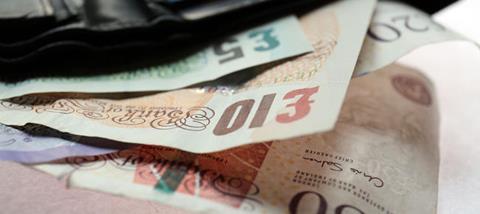
Have you ever asked yourself how your bank is using or investing your savings?
Contrary to what some assume, money doesn’t stay still. It’s not locked up in a big bank vault. It’s always moving, travelling, leaving its mark. And your money starts its journey wherever you choose to save. Sometimes it does good along the way. But sometimes it doesn’t.
In the search for high returns, banks invest and lend their savers’ money around the globe. Sometimes money may be used in ways and in places that you might view as inappropriate, against your personal values or even downright unsavoury.
Someone who cares deeply about cruelty to animals, for example, may unknowingly have had their money lent to factory farming. An individual's money might have supported the gambling industry or production of tobacco or pornography.
Although it still hasn’t reached the same degree of recognition as such movements as Fairtrade or green energy, ethical money has become a more established concept over the last decade. People are now realising they have the ability to know what their money is being used for and the right to do so if they chose to exercise it.
We expect to see where our meat has come from and how it has been farmed or where and how our vegetables have been grown. This information gives us understanding, helps us to trust the brands we buy from and makes us feel like we’re making good choices. Yet when public research was conducted into how people invest their money, 74 per cent of those responding said they didn’t know how their bank was using or investing their savings. However, over half (56 per cent) of people said they would like to be offered an ethical option when choosing a savings account.
Given the choice, wouldn’t you like to know where your money goes? Wouldn’t you want it to work only for good?
Growing numbers of people want to see how their money is being used and if it is making a positive social impact. They want to be assured that their money is doing good. This is why I believe banks should be transparent in their practices, not only to gain and hold the trust of the consumer but to hold themselves to account.
I encourage all those who care about where their savings are invested to research their bank’s ethical policies and ask if they can share details on how they use their savers’ money. The Good Shopping Guide ranks banks and building societies on their social and environmental performance and Ethical Consumer provides various guides and resources.
Charity Bank is a leading ethical option for those concerned about how their money is invested. Money saved with Charity Bank is used to provide loans to support the work of charities, churches and social enterprises across the UK. Savers are provided with information on where Charity Bank is lending their money and the impact it is helping to create. Savings with Charity Bank are invested in ways that can make you feel proud. They could be used to fund a new church building that enables greater outreach, to support the development of a community hydro-electric plant to generate clean electricity, or to help people with disabilities find employment.
Making a conscious decision about how your bank uses your money doesn’t need to be a dream. You can make this a reality.
Justin Hort is Head of Deposit Strategy at Charity Bank
Click here to request a free copy of Premier Christianity magazine





























